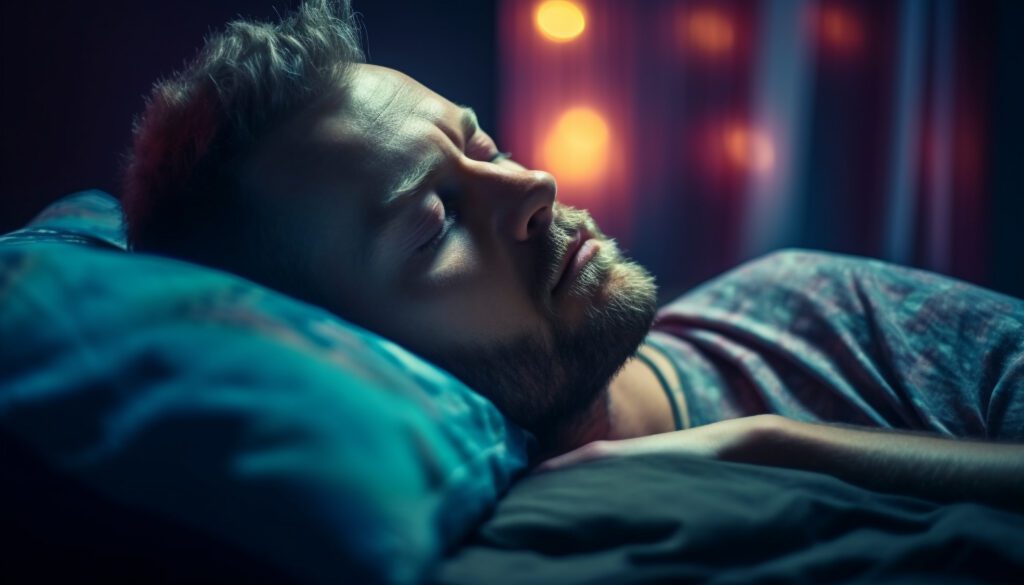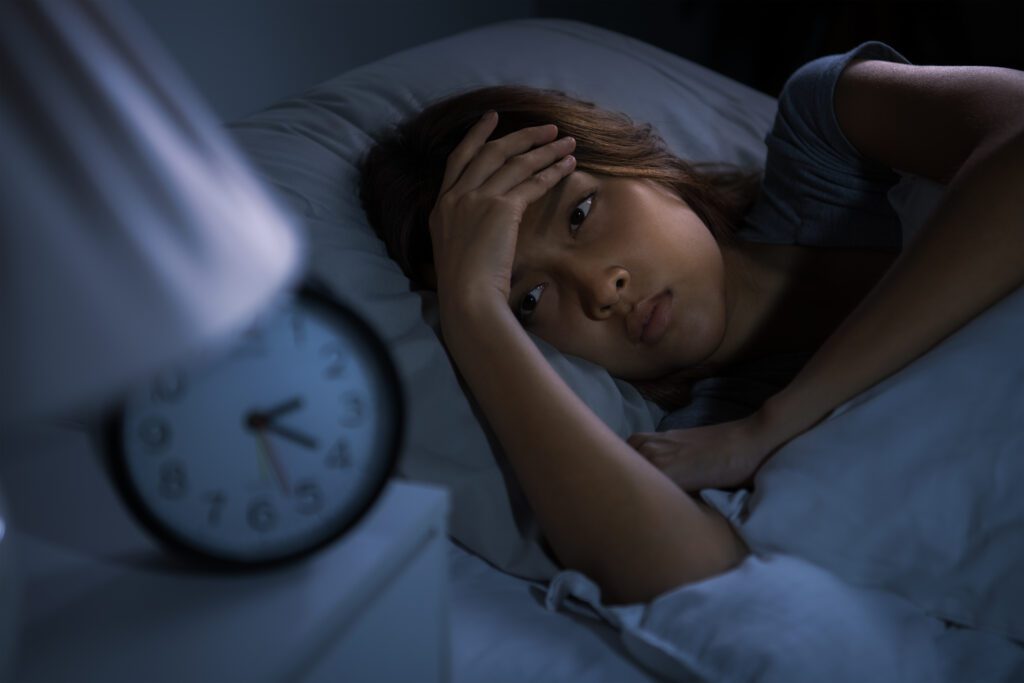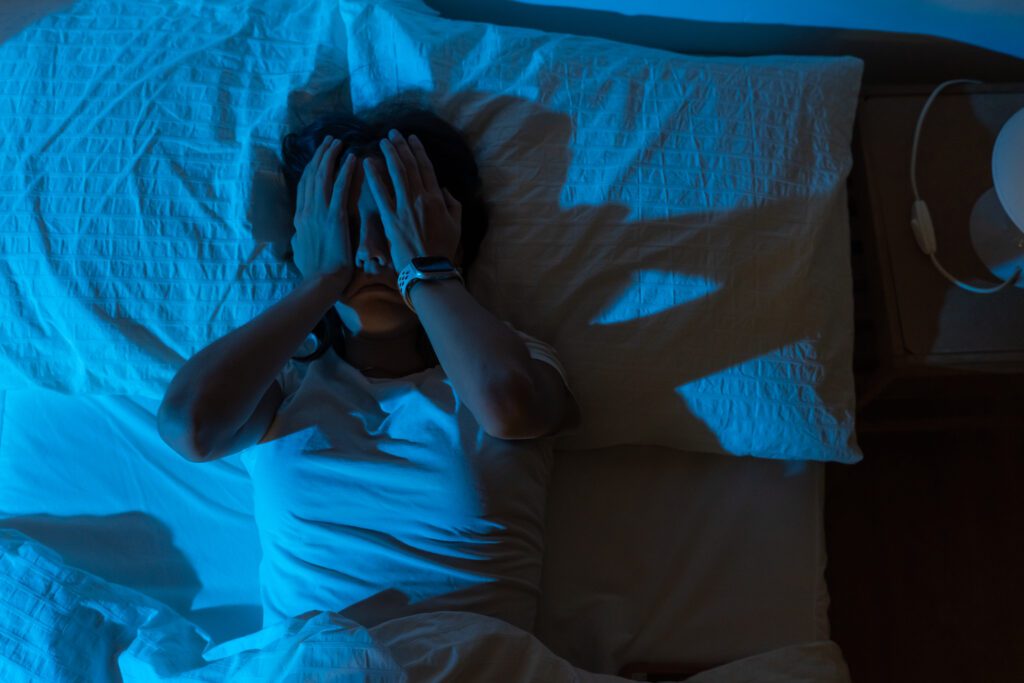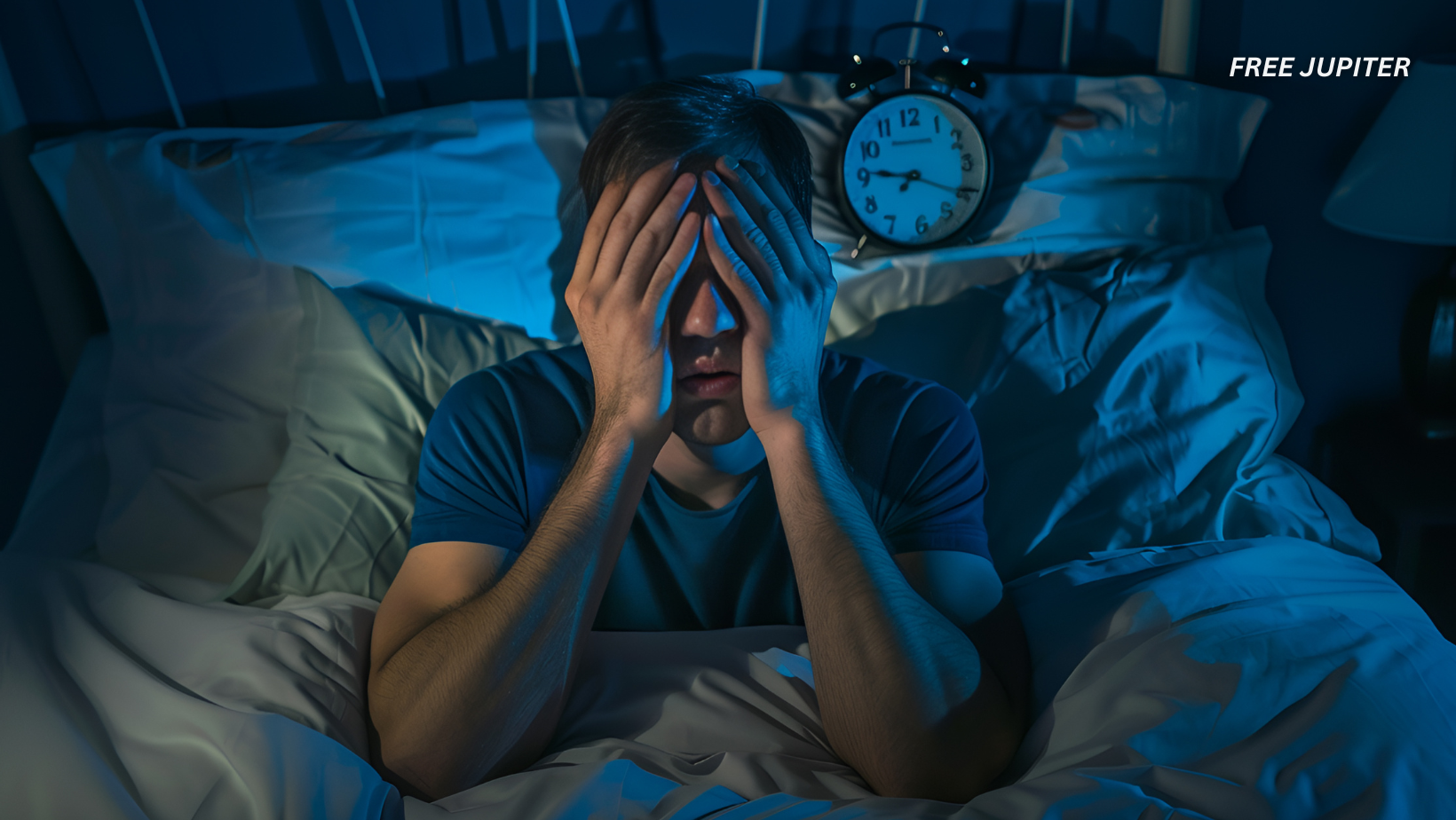Sleep isn’t just a biological need, it’s a reflection of who you are. From the time you go to bed to the way your mind races at night, your personality plays a surprisingly large role in your relationship with rest. Insomnia isn’t just about bad habits or stress, it can stem from how you’re wired. Whether you’re the overthinking perfectionist or the easygoing procrastinator, your sleep style may be closely tied to your psychological makeup.
Let’s break down which traits are most linked to sleeplessness, how attachment styles and emotional tendencies shape sleep, and what psychological studies say about fixing the problem. If you’ve ever wondered why you can’t sleep, even when you’re tired, the answer might be more personal than you think.
What Is Insomnia, Really?
Insomnia isn’t just tossing and turning. It’s a chronic disruption in your sleep quality or quantity that affects your daytime functioning. People with insomnia may struggle to fall asleep, wake up frequently, or rise too early and be unable to go back to sleep. For some, it’s a temporary phase. For others, it’s a lifelong pattern.
According to the American Academy of Sleep Medicine, about 10% of adults have chronic insomnia. But temporary or situational insomnia affects over 30% of people at some point in their lives. Stress is often a trigger, but it’s not the only one. Personality, emotional regulation, and thought patterns are all important players in the sleep equation.
The Personality-Sleep Connection: What Studies Reveal
Psychologists have long known that personality traits can influence health behaviors, but research into sleep reveals a direct line between who you are and how you sleep. The Five Factor Model of personality (also known as the “Big Five”); openness, conscientiousness, extraversion, agreeableness, and neuroticism, has been widely studied in connection with sleep.
A 2017 study published in Sleep Health found that high neuroticism and low conscientiousness were strongly associated with insomnia. People high in neuroticism tend to be anxious, emotionally reactive, and more likely to ruminate at night. Those low in conscientiousness are often disorganized or impulsive, making it harder for them to maintain consistent sleep routines.
Meanwhile, people who are more agreeable and emotionally stable tend to report better sleep quality. The researchers concluded that personality traits may influence both vulnerability to insomnia and the ability to cope with sleep disturbances.
Neuroticism: The Insomnia Magnet
If there’s one personality trait that screams “bad sleeper,” it’s neuroticism. This trait is defined by emotional instability, anxiety, mood swings, and an overall tendency toward negative thinking. Neurotic individuals often catastrophize situations, worry excessively, and struggle with self-soothing, all habits that keep the mind wide awake at 3 a.m.
One study published in Psychosomatic Medicine found that people with high neuroticism scores not only had more trouble falling asleep but were also more likely to report non-restorative sleep and fatigue the next day. Their brains essentially stay in a heightened state of alert even during rest, sabotaging the deep stages of sleep needed for recovery.
Conscientiousness: The Protector of Sleep Hygiene
Conscientious people tend to sleep better, and it makes sense. This trait includes self-discipline, organization, responsibility, and the ability to delay gratification. In short, conscientious folks are the ones who actually go to bed on time.
Research from the Journal of Research in Personality shows that people high in conscientiousness are more likely to have a regular bedtime, avoid late-night screen time, and limit caffeine or alcohol intake before bed. Their routines are predictable, and they tend to take health-related decisions seriously. That combination helps create optimal conditions for sleep.
On the flip side, low conscientiousness is linked with erratic sleep schedules, poor sleep hygiene, and a higher likelihood of insomnia symptoms. If you’re always “winging it,” your sleep may suffer the consequences.

Extraversion, Agreeableness, and Openness: Sleep’s Softer Influences
Extraversion and agreeableness aren’t as strongly connected to insomnia as neuroticism or conscientiousness, but they still play a role. Extraverts tend to report slightly better sleep quality, likely because they are more resilient to stress and better at seeking support when needed.
Agreeable individuals are less likely to internalize stress or harbor resentment, two emotions that often resurface at bedtime. Meanwhile, openness to experience, characterized by imagination and curiosity, can go both ways. Highly open people might have vivid dreams or find it harder to “shut off” creatively, but they’re also more likely to try novel sleep solutions, from meditation to aromatherapy.
Perfectionism and Insomnia
Perfectionism isn’t a Big Five trait, but it’s one of the biggest personality predictors of chronic insomnia. Many perfectionists are high-achievers who set unrealistically high standards for themselves. They often replay their mistakes, plan future tasks obsessively, and struggle to switch off mentally.
A 2014 study in Behaviour Research and Therapy found that people with insomnia scored significantly higher in perfectionism than those without sleep issues. The researchers suggested that a “need for control” could make it hard to surrender to sleep, which requires letting go.
If you lie in bed mentally redoing conversations or worrying about not being productive enough, perfectionism could be driving your insomnia. Cognitive Behavioral Therapy for Insomnia (CBT-I) often targets this mindset directly, teaching techniques to challenge and reframe perfectionistic thoughts.
Introverts vs. Extroverts: Who Sleeps Better?
Introverts often need more alone time to recharge, but does that mean they sleep more or better? Not necessarily. Introverts are more prone to internalizing their stress, and that can affect sleep quality. While they might enjoy quiet nights, their minds may still race with self-reflection or anxiety.
Extroverts, in contrast, often offload stress through social interactions and may be less prone to rumination. But they also tend to have busier social calendars, leading to irregular sleep schedules or late nights.
The bottom line? Neither group has an advantage; what matters more is how you manage your thoughts, your bedtime habits, and your emotional regulation strategies.

Attachment Styles and Sleep: Love, Trust, and Rest
Your attachment style, how you relate to closeness and trust in relationships, can shape how safe and relaxed you feel when it’s time to sleep. People with secure attachment tend to feel more emotionally stable and supported, which makes winding down easier.
Insecure attachment styles, especially anxious attachment, are linked with poor sleep quality. A study published in the Journal of Sleep Research found that people with anxious attachment were more likely to report insomnia symptoms, nightmares, and frequent night waking.
Avoidant types also showed fragmented sleep, often due to discomfort with vulnerability and relaxation. Sleep requires surrender, and for those who struggle with intimacy or letting go, bedtime can be a difficult emotional space.
Overthinking, Rumination, and the Cognitive Loop
One of the most common experiences among insomniacs is mental overdrive. This isn’t a coincidence, it’s a cognitive trait that overlaps with several personality styles, especially high neuroticism, anxious attachment, and perfectionism.
Overthinkers tend to ruminate, replaying the past, analyzing conversations, or worrying about future scenarios. This loop is particularly harmful at night when there are no distractions to break the cycle. The brain, now free from external input, fills the silence with anxiety-fueled scenarios.
Mindfulness-based interventions have shown success in reducing rumination. A 2015 study in JAMA Internal Medicine found that mindfulness meditation significantly improved sleep quality in adults with moderate sleep disturbances. Training the brain to observe thoughts without attachment reduces the intensity and frequency of cognitive arousal at bedtime.
Personality Disorders and Chronic Sleep Disruption AKA Insomnia
In more severe cases, personality disorders can drastically disrupt sleep. Borderline Personality Disorder (BPD), for example, is associated with emotional dysregulation, impulsivity, and unstable relationships. People with BPD often experience intense nightmares, fragmented sleep, and severe insomnia.
Similarly, those with Obsessive-Compulsive Personality Disorder (OCPD) may struggle with sleep due to rigid routines, inflexible thinking, and difficulty relaxing control. Their perfectionism and hyper-focus on routines can create sleep rituals that are paradoxically anxiety-inducing.
These cases require professional treatment. In many instances, insomnia cannot be resolved without addressing the underlying psychological patterns at the root of the problem.
How to Improve Sleep When Your Personality Is Working Against You
Just because your personality leans a certain way doesn’t mean you’re doomed to a lifetime of bad sleep. The first step is awareness. Knowing your tendencies gives you the tools to respond instead of react.
Here are strategies tailored to specific personality traits:
- For high neuroticism: Journaling, emotional labeling, and CBT techniques help reduce nighttime anxiety.
- For low conscientiousness: Set alarms for bedtime, limit late caffeine, and use apps to build consistency.
- For perfectionists: Practice “good enough” thinking. Reframe mistakes as learning rather than failure.
- For anxious attachers: Build soothing bedtime rituals that signal safety, gentle music, warm lights, or body scans.
- For overthinkers: Try a “worry window” earlier in the evening. Write down thoughts before bed and revisit them tomorrow.
Sleep tracking apps can also provide insight into your patterns and help identify behavior-sleep connections. The key is to treat sleep as a skill, not just a state.

Insomnia: You’re Not Just a Bad Sleeper
If you’ve struggled with sleep, it’s easy to blame external factors – stress, work, noise, screens. But sometimes, the problem starts within. Your personality, thought habits, emotional tendencies, and attachment patterns all shape how you sleep. Insomnia isn’t a failure of willpower or lifestyle, it’s a mind-body feedback loop.
Understanding this connection empowers you to work with your personality instead of against it. The goal isn’t to change who you are, but to support your sleep by learning how your mind works. In many cases, the path to better rest doesn’t start with melatonin or blackout curtains, it starts with self-awareness.
Sleep isn’t just physical. It’s deeply psychological. And when you get your mind on board, your body tends to follow.










